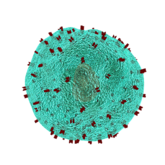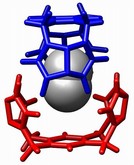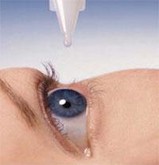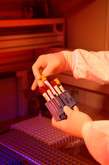Biosimilars
Quebec announces biosimilar switching policy
Quebec, Canada has announced a biosimilar switching policy, which is expected to generate annual savings of CA$100 million at its conclusion in 2022.
Bioequivalence of MYL-1402O to EU- and US-reference bevacizumab
The proposed bevacizumab biosimilar MYL-1402O demonstrated bioequivalence to European Union (EU)- and United States (US)-reference bevacizumab in a pharmacokinetic (PK) study of healthy adult male volunteers.
What drives negative perceptions of biosimilars?
A study of patients taking biological drugs in New Zealand identifies a number of attributes associated with negative perceptions of biosimilars, including being female, seeking information online, and preferring innovator drugs [1].
China approves sintilimab plus bevacizumab copy biological Byvasda
China-based drugmaker Innovent Biologics (Innovent) announced on 29 June 2021 that China’s National Medical Products Administration (NMPA), formerly the China Food and Drug Administration (CFDA), has approved the combination drug Tyvyt (sintilimab) plus bevacizumab copy biological Byvasda (IBI-305).
Clinical trials begin for ustekinumab biosimilars
Biosimilars firms BioFactura and Alvotech announce the start of clinical trials for their Stelara (ustekinumab) biosimilars, named BFI-751 and AVT04, respectively.
Biosimilars as a sustainable alternative for complex diseases
The use of ‘similar biotherapeutic’ products and ‘biocomparable’ medicines, as biosimilar medicines are named in Colombia and Mexico, respectively, offer a sustainable alternative for health systems, leading to significant savings for payers and health institutions, as well as market opening. Biosimilars thus provide a fair competitive solution.
EMA recommends approval of Samsung Bioepis/Biogen’s ranibizumab biosimilar Byooviz
The European Medicines Agency’s (EMA) Committee for Medicinal Products for Human Use (CHMP) has given a positive opinion for the ranibizumab biosimilar Byooviz (SB11), produced by Samsung Bioepis and commercialized by Biogen.
Switching to biosimilars safe and effective in IBD patients
Multiple adalimumab biosimilars are now approved for use in inflammatory bowel disease (IBD). In fact, to date, 29 June 2021, there are 10 adalimumab biosimilars approved in Europe [1]. However, despite their approval, effectiveness and safety data in IBD remains scarce, according to authors from the UK and The Netherlands [2].
PANLAR issues consensus statement on biosimilars
PANLAR presented its position on biosimilar medicines at its own congress in Argentina. Via the consensus statement, the PANLAR specialists seek to demonstrate the efficacy, pharmacovigilance, regulation, quality and safety of biosimilar medicines.
Biosimilars in Spain: balance between innovation and health public expenditure
Biosimilars have been marketed in the European Union (EU) for 13 years. Due to uncertainties about substitutability and interchangeability, their commercialization has been criticised.













